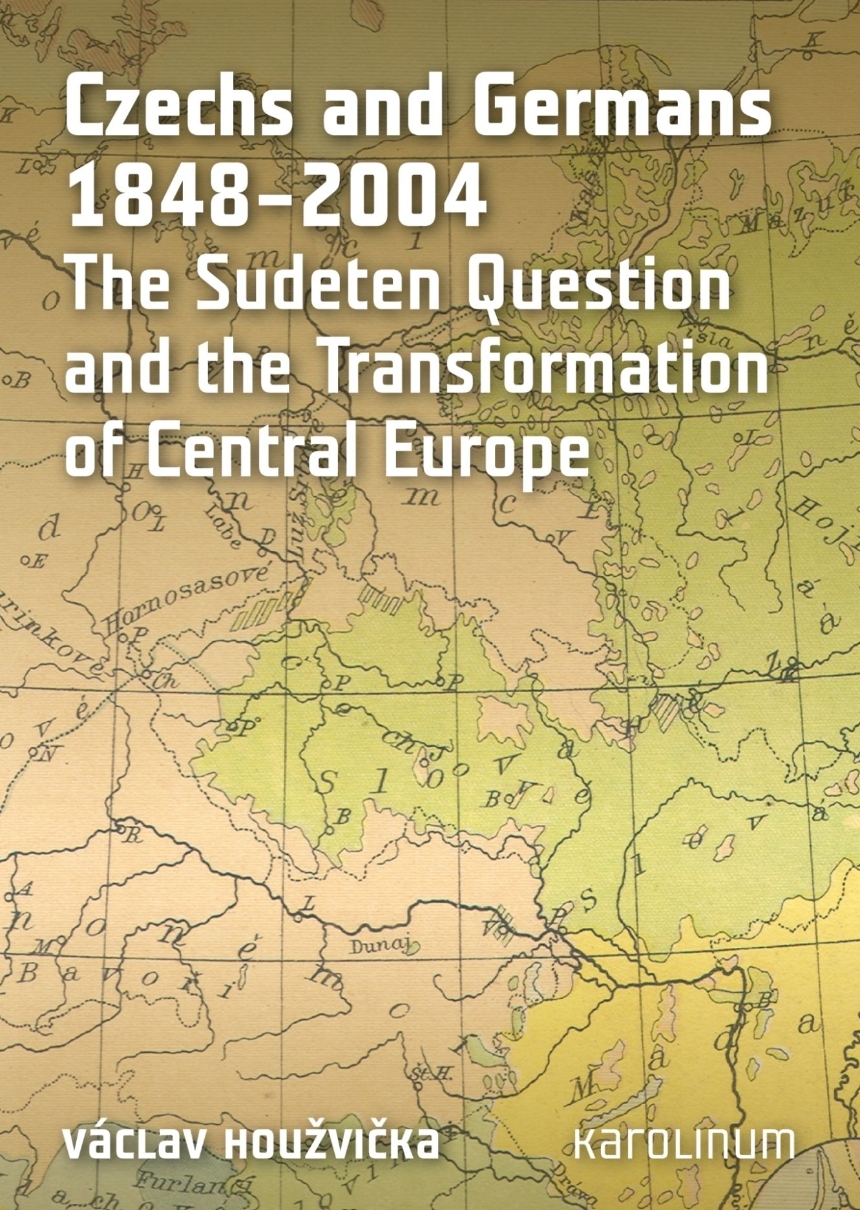Karolinum Press, Charles University
Czechs and Germans 1848-2004
The Sudeten Question and the Transformation of Central Europe
9788024621449
Distributed for Karolinum Press, Charles University
Czechs and Germans 1848-2004
The Sudeten Question and the Transformation of Central Europe
Václav Houžvicka describes the development of the Czech-German national controversies from the mid-nineteenth century, through the establishing of the Czechoslovak Republic in 1918, to the beginning of the twenty-first century. He focuses primarily on the tragic end of the nations’ coexistence in 1938–1945 and the differing Czech and German understandings of the reasons for the removal of Germans from the Czechoslovak Republic after 1945 in the latter part of the twentieth century. Houžvicka clarifies the relationships between Czech, German, and Sudeten-German identities within the international and social-economic context of the twentieth century.
Reviews
Table of Contents
Introduction - Historical Context and the Right to Memory
1. German Central Europe and Czech Emancipation
Ethnic Tensions in the Monarchy and Masaryk's Programme
2. Mitteleuropa - The vision of a dominant Germany
Naumann's Project
Ideas of Greater Germany
3. The Central Europe of the Successor States
The Paris Peace Conference
German Bohemians versus Czechoslovakia
Democratic Reform of National-Ethnic Relations
Civic Nation versus Ethnic Community
4. Germans in the New Republic
The Language Law
German Parties and the Politics of Engagement
The Economic Crisis and the Borderlands
5. The Resurgence of Germany as a Great Power
Through Equal Rights to Revision
Complaints to the League of Nations
German Minorities Abroad
Ethnic Germans as an Instrument of Expansion
The Programme of International Isolation of the CSR
The Psychological War against Czechoslovakia
Press Propaganda
6. The Triumph of the Appeasers at Munich
Secret Diplomatic Soundings in Prague
Henlein's Karlsbad Ultimatum
Munich 1938
The Historical Dilemma of Capitulation
The Interval of the Second Republic
The Conflict-Ridden Principle of Self-determination
7. The Genesis of the Transfer of the Sudeten Germans
A Century of Transfers of Populations
The Sudeten Germans and the Protectorate
The Sudetenland Model Reichsgau
The London Government in Exile and the Home Resistance
Edvard Beneš and British Plans
Transfer or Expulsion?
Cutting the Gordian Knot
8. The Transferred Sudeten Germans in Post-war Germany
The Formation of the Sudeten German Expellee's Organisations
The Unification of the Expellees
The Twenty-Point Programme
The Support of the Political Spectrum of the FRG for the Expellees
9 The Sudeten German Question between Home and Exile
The Danubius Theses on the Expulsion of the Czechoslovak Germans
The Czech Fate in Central Europe
The Redefinition of the German Role in Central Europe
10. The Return of Freedom (and History) - 1989
The Opening of Dialogue and the Division of the State
The Declaration and Conditional Reconciliation
Modified Regionalism and Ethnic Minorities
The Dual Interpretation of History
11. Memory as Part of the Present
Cautious Friendship
The Historical Roots of Attitudes to Germany
Fears of Germany - A Reduced State Syndrome?
Germany Unified and Emancipated
The Return of Mitteleuropa?
12. Germany and the Sudeten German Question in the Eyes of Public Opinion
13. The Czech-German Relationship between Past and Future
Instead of a conclusion
Bibliography
Bibliographical Note
List of Appendix Documents, Maps and Charts
Maps and Graphs
List of Illustrations
Index
1. German Central Europe and Czech Emancipation
Ethnic Tensions in the Monarchy and Masaryk's Programme
2. Mitteleuropa - The vision of a dominant Germany
Naumann's Project
Ideas of Greater Germany
3. The Central Europe of the Successor States
The Paris Peace Conference
German Bohemians versus Czechoslovakia
Democratic Reform of National-Ethnic Relations
Civic Nation versus Ethnic Community
4. Germans in the New Republic
The Language Law
German Parties and the Politics of Engagement
The Economic Crisis and the Borderlands
5. The Resurgence of Germany as a Great Power
Through Equal Rights to Revision
Complaints to the League of Nations
German Minorities Abroad
Ethnic Germans as an Instrument of Expansion
The Programme of International Isolation of the CSR
The Psychological War against Czechoslovakia
Press Propaganda
6. The Triumph of the Appeasers at Munich
Secret Diplomatic Soundings in Prague
Henlein's Karlsbad Ultimatum
Munich 1938
The Historical Dilemma of Capitulation
The Interval of the Second Republic
The Conflict-Ridden Principle of Self-determination
7. The Genesis of the Transfer of the Sudeten Germans
A Century of Transfers of Populations
The Sudeten Germans and the Protectorate
The Sudetenland Model Reichsgau
The London Government in Exile and the Home Resistance
Edvard Beneš and British Plans
Transfer or Expulsion?
Cutting the Gordian Knot
8. The Transferred Sudeten Germans in Post-war Germany
The Formation of the Sudeten German Expellee's Organisations
The Unification of the Expellees
The Twenty-Point Programme
The Support of the Political Spectrum of the FRG for the Expellees
9 The Sudeten German Question between Home and Exile
The Danubius Theses on the Expulsion of the Czechoslovak Germans
The Czech Fate in Central Europe
The Redefinition of the German Role in Central Europe
10. The Return of Freedom (and History) - 1989
The Opening of Dialogue and the Division of the State
The Declaration and Conditional Reconciliation
Modified Regionalism and Ethnic Minorities
The Dual Interpretation of History
11. Memory as Part of the Present
Cautious Friendship
The Historical Roots of Attitudes to Germany
Fears of Germany - A Reduced State Syndrome?
Germany Unified and Emancipated
The Return of Mitteleuropa?
12. Germany and the Sudeten German Question in the Eyes of Public Opinion
13. The Czech-German Relationship between Past and Future
Instead of a conclusion
Bibliography
Bibliographical Note
List of Appendix Documents, Maps and Charts
Maps and Graphs
List of Illustrations
Index

